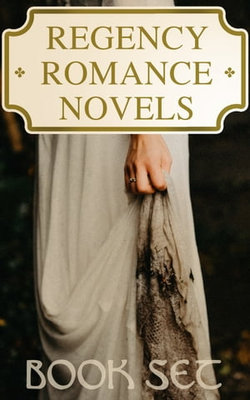E-artnow presents to you this meticulously edited collection of the greatest Regency Romance novels. A book set of the most glamourous and thrilling stories of all time, ranging in content from love, sensuality and marriage to conflict, conspiracies, and wit. This edition includes: Love in Excess (Eliza Haywood) War and Peace (Leo Tolstoy) Pride and Prejudice (Jane Austen) Sense and Sensibility (Jane Austen) Mansfield Park (Jane Austen) Emma (Jane Austen) Persuasion (Jane Austen) Evelina (Fanny Burney) Cecilia (Fanny Burney) Camilla (Fanny Burney) The Wanderer (Fanny Burney) Mary: A Fiction (Mary Wollstonecraft) Paul and Virginia (Bernardin de Saint-Pierre) First Love (Mrs. Loudon) Dilemmas of Pride (Mrs. Loudon) The Yellow Poppy (D. K. Broster) Mr. Rowl (D. K. Broster) The Battle of the Strong (Gilbert Parker) Malcolm (George MacDonald) Lorna Doone (R.D. Blackmore) First Love (Ivan Turgenev) A Dash for a Throne (Arthur W. Marchmont) The Wild Irish Girl (Lady Sydney Morgan) Sophia (Stanley John Weyman) Belinda (Maria Edgeworth) Patronage (Maria Edgeworth) Fantomina (Eliza Haywood) The History of Miss Betsy Thoughtless (Eliza Haywood) The Fortunate Foundlings (Eliza Haywood) Memoirs of Emma Courtney (Mary Hays) Dangerous Liaisons (Pierre Choderlos de Laclos) Miss Marjoribanks (Mrs. Olifant) Phoebe, Junior (Mrs. Olifant) Vanity Fair (William Makepeace Thackeray) Pamela (Samuel Richardson) Anti-Pamela (Eliza Haywood) Shamela (Henry Fielding) Olinda's Adventures (Catharine Trotter Cockburn) The Charterhouse of Parma (Stendhal) The Sorrows of Young Werther (Goethe)




Share This eBook: